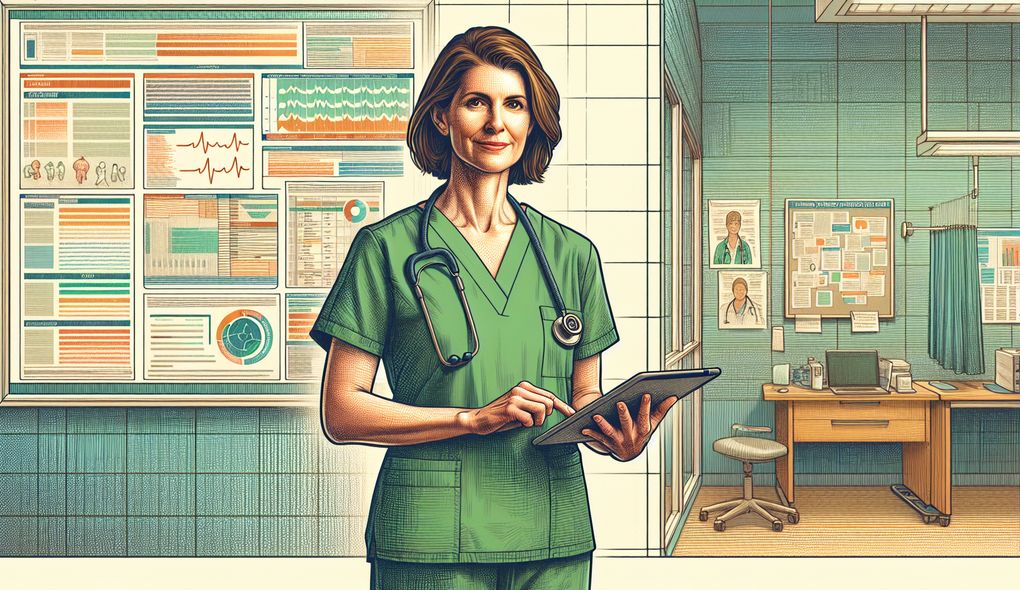Can you explain a time when you had to apply your clinical skills in patient care?
JUNIOR LEVEL

Sample answer to the question:
During my clinical rotation at a community hospital, I encountered a patient with multiple chronic conditions who was struggling to manage their medications effectively. As part of my role, I assessed the patient's medication regimen and identified some potential medication interactions and duplications. I immediately contacted the primary care physician and discussed my findings. Together, we revised the patient's medication plan to optimize their treatment. In addition, I provided the patient with education on proper medication administration and monitoring. Over time, the patient's symptoms improved, and they reported feeling more in control of their health. This experience highlighted the importance of applying clinical skills to patient care, as it not only improved the patient's quality of life but also contributed to the overall healthcare system by preventing potential complications.
Here is a more solid answer:
During my clinical rotation at a community hospital, I encountered a 55-year-old patient with type 2 diabetes, hypertension, and hyperlipidemia. The patient was struggling to manage their medications effectively, leading to poor disease control. Using my strong clinical skills, I conducted a thorough assessment of the patient's medication regimen and identified several potential issues, including medication interactions and duplications. Recognizing the importance of collaboration, I communicated my findings to the primary care physician and engaged in a comprehensive discussion regarding possible modifications to the patient's treatment plan. Together, we revised the medication regimen, adjusting dosages and eliminating unnecessary medications. I also took the opportunity to educate the patient on proper medication administration and monitoring. By leveraging my excellent communication skills, I explained the rationale behind the adjustments and ensured the patient's understanding. Over the course of the following weeks, the patient's symptoms significantly improved, and they reported feeling more in control of their health. This experience demonstrated my ability to apply clinical skills to optimize patient care and highlighted the importance of interdisciplinary collaboration in delivering comprehensive healthcare.
Why is this a more solid answer?
The solid answer expands on the basic answer by providing specific details about the patient's condition, the medication issues identified, and the actions taken to address them. It also emphasizes the candidate's ability to work in a team and effectively communicate with healthcare professionals. However, it can still be improved by further highlighting the candidate's expertise in health policy and the impact of their actions on advancing patient outcomes.
An example of a exceptional answer:
During my clinical rotation at a community hospital, I encountered a 55-year-old patient with type 2 diabetes, hypertension, and hyperlipidemia who had been struggling to manage their medications effectively, leading to poor disease control and frequent emergency room visits. Recognizing the impact of health policy on clinical practice, I utilized my strong clinical skills to conduct a comprehensive assessment of the patient's medication regimen. Through a meticulous review, I identified potential medication interactions and duplications that could be attributed to the limitations of the patient's insurance coverage. Understanding the implications of healthcare policies, I engaged in a proactive discussion with the primary care physician, emphasizing the need for medication plan modifications that align with evidence-based practices and the patient's financial circumstances. Together, we collaborated with the pharmacy department to explore alternative medication options and access patient assistance programs. Additionally, I took the opportunity to educate the patient on the importance of health policy and how it can impact access to affordable medications. By leveraging my excellent verbal and written communication skills, I provided the patient with a detailed explanation of the changes made to their medication regimen, empowering them to actively participate in their own care. As a result, the patient's symptoms significantly improved, leading to a reduction in emergency room visits and an enhanced quality of life. This experience highlighted the essential role of clinical skills in patient care, the significance of understanding health policy issues, and the potential for healthcare professionals to advocate for policy changes that positively impact patient outcomes.
Why is this an exceptional answer?
The exceptional answer goes above and beyond by providing additional context about the patient's healthcare access challenges and the candidate's understanding of the relationship between health policy and clinical practice. It also emphasizes the candidate's ability to advocate for policy changes to enhance patient outcomes. With specific examples and clear explanations, this answer demonstrates the candidate's expertise in all the evaluation areas mentioned in the job description.
How to prepare for this question:
- Reflect on past clinical experiences where you applied your skills to improve patient care. Consider situations that involved interdisciplinary collaboration and communication with healthcare professionals.
- Stay updated on current health policy issues and their implications for clinical practice. Familiarize yourself with legislative and regulatory processes related to healthcare policy.
- Practice articulating the impact of health policy on patient care and be prepared to share specific examples of how you have advocated for policy changes in the past.
- Highlight your ability to analyze healthcare policies and their impact on patient care. Discuss your experience in implementing policies within clinical settings.
- Demonstrate your strong clinical skills and knowledge of evidence-based practice through your answers and provide specific details to support your claims.
What are interviewers evaluating with this question?
- Strong clinical skills in patient care and assessment
- Ability to work in a team as well as independently
- Excellent written and verbal communication skills

